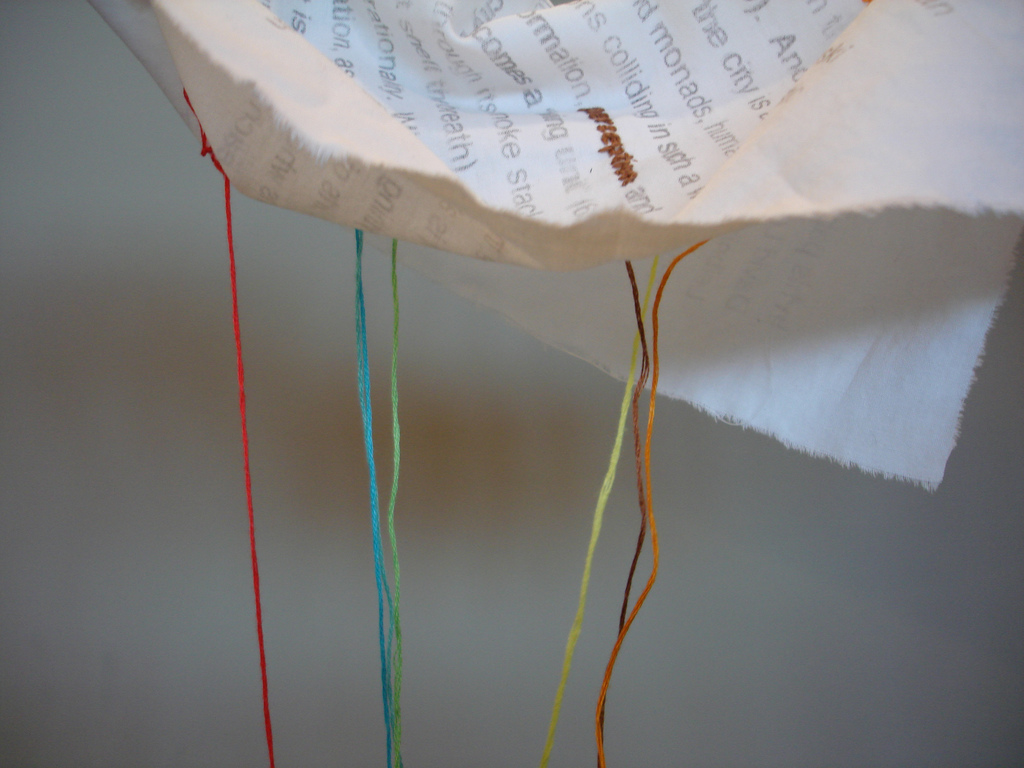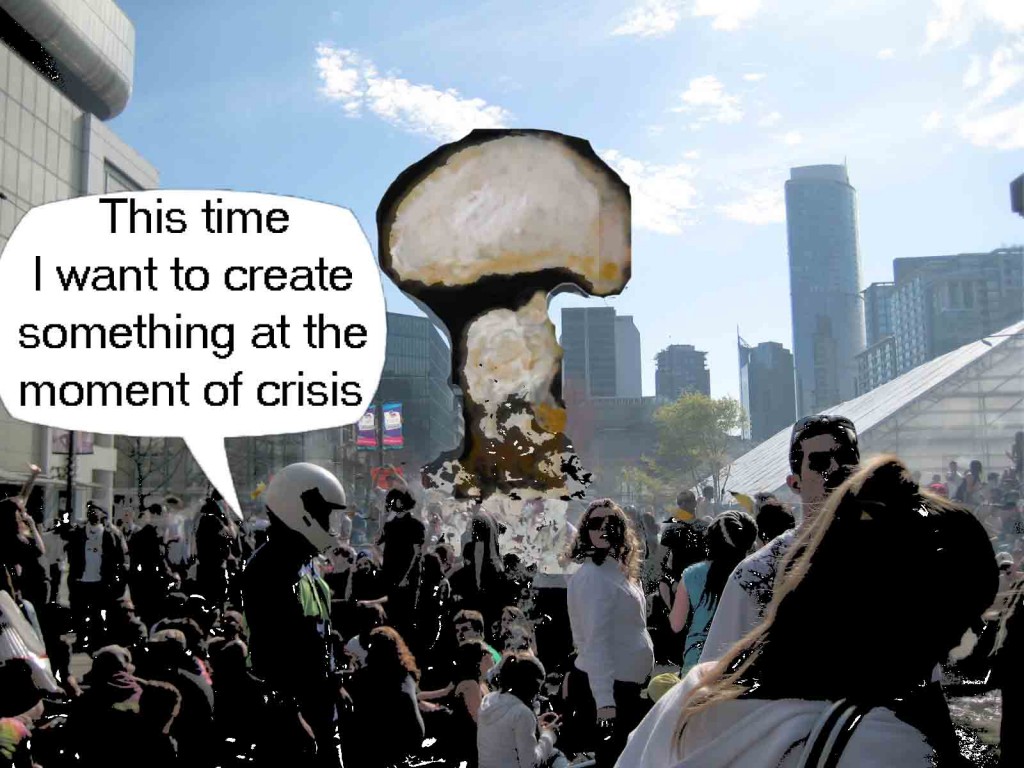Category Archives: Term Projects
Fictional Hacktivism Unbound
Hey guys,
Here’s my term project. The title is “Fictional Hacktivism is Unbound: how fictional, past and future renditions of hacktivism have re-defined today’s geopolitical spectrums of analysis.”
since i’m majoring in political science and love doing intense research essays, thats what this ended up being because i had so much fun researching hacktivism, haha. there is also a photoset i put together to go with the essay as well.
I’ve put the essay on a webpage HERE which is more interesting because it has photos of computer/urban centers as well as the essay,
or if you’d rather read the essay straight you can download it HERE. (Microsoft Word format)
…thanks for being so awesome in this class, everyone. it was one of my favourite classes i’ve ever had at UBC and i really truly grew to respect all of you! i hope we can all do something together soon which involves talking about sci-fi because i’m always up for that!
–Kat
A comic: exploring the possible
mirrors / projections / realities (A fictional / non-fiction Adventure into the Future)
check it out – some changes.
Places that are not Places
This should work, but if it doesn’t let me know…
Critical Response 2: Max’s term project
Note: Since my story isn’t very interesting if I give you clues, I’ll try not to discuss specifics here. It’s still much more fun if you don’t read this until after finding all the parts of “Hard Core Angels.”
Lonelygirl15 was a video blogger from 2006 who didn’t really exist. When I learned about the hoax and the controversy surrounding it, I found it fascinating: our society seems to be obsessed with shepherding truth in narrative lately, and the fact that this attitude spills over onto the internet is proof of how strange we’re becoming as a culture. James Frey’s memoir was torn apart by Oprah that year, while JT Leroy was revealed as “deceitful above all things” a few months before. Lying and freaking out seemed to be the flavor of the month in America: Bush lied about Iraq having WMDs and Clinton lied about not getting a blowjob, and it kind of trickled down from there.
Who’s to say, however, that truth is beauty and beauty really truth? Fuck Keats, sometimes “…all / ye know on Earth, and all ye need to know” should include an intriguing fabrication or several. Imagine the President as storyteller, not asexual dispenser of freedom. Imagine that when Clinton said that he “did not have sex with that woman, Miss Lewinsky,” he wasn’t just lying to save his skin: he was inviting us to explore the fictional world of a narrative in which his character, the fictional President, did not have sex with that fictional woman, Miss Fictional Lewinsky. Imagine that a lie is just a really good story.
My final project is a short story and it’s about lies, and it’s about media, and it’s about the places people live and the technology they use to do that living. It’s about the automobile, the great American transport of the 20th century, and it’s about the internet, the great American transport of the 21st. More specifically, it’s about a teenage girl named Sarah who dies in the summer of 2006, and about how three people who were close to her react.
The summer of 2006 is kind of a weird time to put science fiction. Generally that kind of story takes place in the far future, or at least the near future with jet-packs and UFOs. This is still valid science fiction, though, because of one thing: it explores the effects of technology on people, which is the point of science fiction (otherwise you’re just putting in lasers and green women to fend off boredom). All four fictional people have their own blogs, Myspaces, and other internet presences. You have to find them yourself – it gets sort of nonlinear in the middle, although there’s a definite beginning and end.
This is a new way of creating narratives, and it’s been done before, mostly for commercial purposes (some of the kids from Heroes, for example, have Myspace pages). To the best of my knowledge, though, nobody has set out to create a bona fide short story from blogs and Myspaces. Just think of it as an epistolary novel ripped into bits and hidden in other books!
That wouldn’t be a very good metaphor, though, because one of the things I wanted to explore in a short story is a very new phenomenon which makes this more than just a combination epistolary novel and easter egg hunt, and that is the phenomenon of death on the internet. If you haven’t, already, check out mydeathspace.com. The site collects articles on dead people and links to their Myspace profiles. It’s morbid at first, but the things people leave behind online can be a fascinating glimpse into who they were.
Human interaction via the internet is relatively new. There hasn’t been time for taboos to form, or even for the most rudimentary social customs to develop. Most people on the internet, it seems, are angry, mildly autistic exhibitionists who can’t spell very well. When we treat the net as a city, we can see everyone having sex with the blinds open. People paint their deepest, darkest, secrets on their walls. They drive around aimlessly, and sometimes get lost. Then when they die, they leave an empty building like the shell of a hermit crab.
If you google someone hard enough, you can see the trail they’ve left across the internet. Little pieces of human lives are scattered across endless pages as people move from Geocities to Angelfire to Friendster to Myspace to Facebook to Twitter and to whatever the next digital city is, leaving a trail of ghost towns in their wake. Googling someone and finding their Xanga or Livejournal from several years ago is very similar to wandering through one of the abandoned mining towns of the American Southwest.
The point of all this is that we as a species have run out of places on the planet where we can easily start cities. We’ve begun to create them on the internet instead. People are living, more and more, in places which aren’t made of dirt and brushed aluminum but rather a series of ones and zeroes. Telling stories about the places we live is one of humanity’s favorite activies, and now that we’re starting to live on and in the net, we’ll probably see more and more stories set there. This project is just one of a flood of stories which will be written about the internet, and it’s not even that well written, but I’m fairly certain it’s told in a novel way and sometimes that’s more interesting than good writing.
Understanding A.I.: a design document
Voila: http://sites.google.com/site/understandai/home
And can I just say, holy crap, I don’t even have any pictures or anything and it took me hours to put this together online. A million kudos to all of you who did fancy web things…
One warning, its kind of misleading because its full of links but they all lead back to other parts of the document. This made a lot more sense and was a lot more useful about a day and a half ago back when it was less linear until I decided that a free form design document is just a little too “next level” for even this class. As in… at the unnecessarily convoluted level.
site writing: the situated imagination
done! (sort of)
I wrote myself into weird little implosion with this. The art project itself went really well, and the majority of the critical reaction (built into the proposal, if it looks familiar) is lucid, drawing connections between the project and broader themes of the course. I’m still bewildered though by the question I ended with, and specifically the implications of narrative and standpoint theory within the context of science fiction and architectural space. It’s a start though.
and the term projects that have gone up so far are amazing! congratulations for having made this course a success.
“Hard Core Angels”
A lot of people have incredibly embarassing lives in the only city of the future to ever actually end up existing. People build houses in the internet, just so they can put billboards on the roofs to tell the world their secrets. This kind of voyeuristic architecture is explored in my project, “Hard Core Angels.” It’s a short story made out of the blogs, Myspaces, and personal tragedies of four fictional people. You start here.
Virtuality Useless
So here is My Project.

